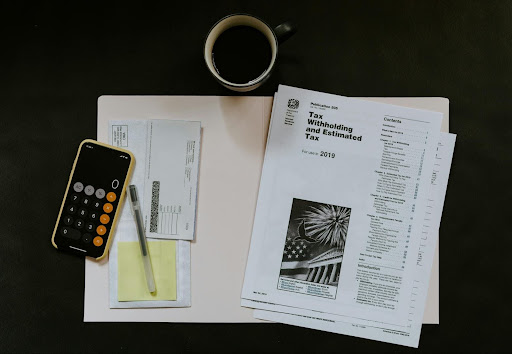
Facing tax liabilities can be a daunting experience, stirring fears of financial instability and legal repercussions. However, comprehensive planning and adept management of one’s tax obligations can transform this burden into an opportunity for financial growth and peace of mind. The journey from tax debt to financial freedom requires adherence to strategic practices and a comprehensive understanding of one’s options within the tax landscape. Below, we discuss steps for overcoming tax liabilities effectively.
Understanding Your Tax Liabilities and the Impact on Personal Finances
The first step in addressing tax debt is to understand the full scope of what you owe, including federal and state taxes, penalties, and interest. Failing to do so can quickly escalate the problem, leading to damaged credit, tax liens, or levies on assets. Taking early action is essential to prevent debts from becoming unmanageable.
Staying informed about tax laws, filing requirements, and common causes of debt—such as under-withholding or unexpected income—can help avoid repeated mistakes. For those facing complex situations, seeking guidance from professionals like tax relief helpers California provides tailored strategies to reduce burdens and regain financial control.
Navigating the IRS: Options for Tax Debt Relief
The IRS provides several relief options for taxpayers struggling with liabilities, including Offers in Compromise (OIC), installment agreements, and Currently Not Collectible (CNC) status. An OIC allows qualified individuals to settle tax debt for less than the full amount owed, but strict eligibility standards apply, requiring thorough documentation and proof of financial hardship. This path can reduce the burden but demands careful preparation and compliance.
When an OIC is not possible, installment agreements offer a practical alternative by breaking payments into manageable monthly amounts. For those in severe distress, CNC status can temporarily halt collection efforts until finances improve, though the debt remains. Staying informed about IRS policies is essential for negotiating effectively.
Strategies for Negotiating Tax Settlements and Payment Plans
Negotiating with the IRS requires preparation and a clear strategy. Success often depends on presenting accurate financial records, demonstrating genuine hardship, and maintaining transparent communication. Avoiding delays or evasive responses helps prevent added penalties, while prompt and honest interaction can foster cooperation. Many taxpayers also benefit from working with a tax professional who understands both tax law and the negotiation process.
Equally important is proposing realistic repayment terms that reflect your actual financial capacity while aligning with IRS guidelines. Showing sincerity and a genuine intent to resolve tax debt strengthens your case. Keeping thorough documentation of every exchange and retaining copies of all submitted materials safeguards against disputes and ensures a reliable record of progress.
Building a Sustainable Budget to Avoid Future Tax Debt
Securing lasting relief from tax burdens requires more than settling existing debts—it demands building a stable financial foundation. A practical budget plays a central role, ensuring tax obligations are met on time while minimizing the risk of new liabilities. Cutting discretionary expenses, identifying cost-saving opportunities, and setting aside emergency savings provide a safeguard against falling behind during financial strain.
For those with variable income, making quarterly tax payments helps spread obligations throughout the year, avoiding overwhelming year-end bills. Leveraging budgeting software or professional guidance adds structure and oversight, strengthening financial discipline. With careful planning and proactive measures, taxpayers can maintain compliance and protect long-term financial health.
Embracing Financial Discipline for Long-Term Freedom from Tax Burdens
Breaking free from tax debt requires lasting financial discipline built on mindset shifts and responsible habits. Living within one’s means, planning for tax obligations, and keeping accurate records of income and deductible expenses help streamline filings while maximizing
legitimate claims. Strong record-keeping reduces errors and strengthens financial stability.
Staying updated on tax law changes ensures strategies remain effective and compliant. Adapting plans to align with evolving regulations helps reduce liabilities and avoid penalties. Working with financial advisors and tax professionals offers valuable guidance through complex rules while tailoring solutions to personal goals. Continuous learning, adaptability, and expert support create the foundation for long-term tax stability.
Overall, diving deep into tax liabilities and exploring resolutions leads to an empowered financial position. By understanding and pursuing available options, adopting smart negotiation strategies, building sustainable budgets, and, most importantly, developing long-term discipline, taxpayers can ultimately transition from the burden of tax debts to the freedom of financial stability.